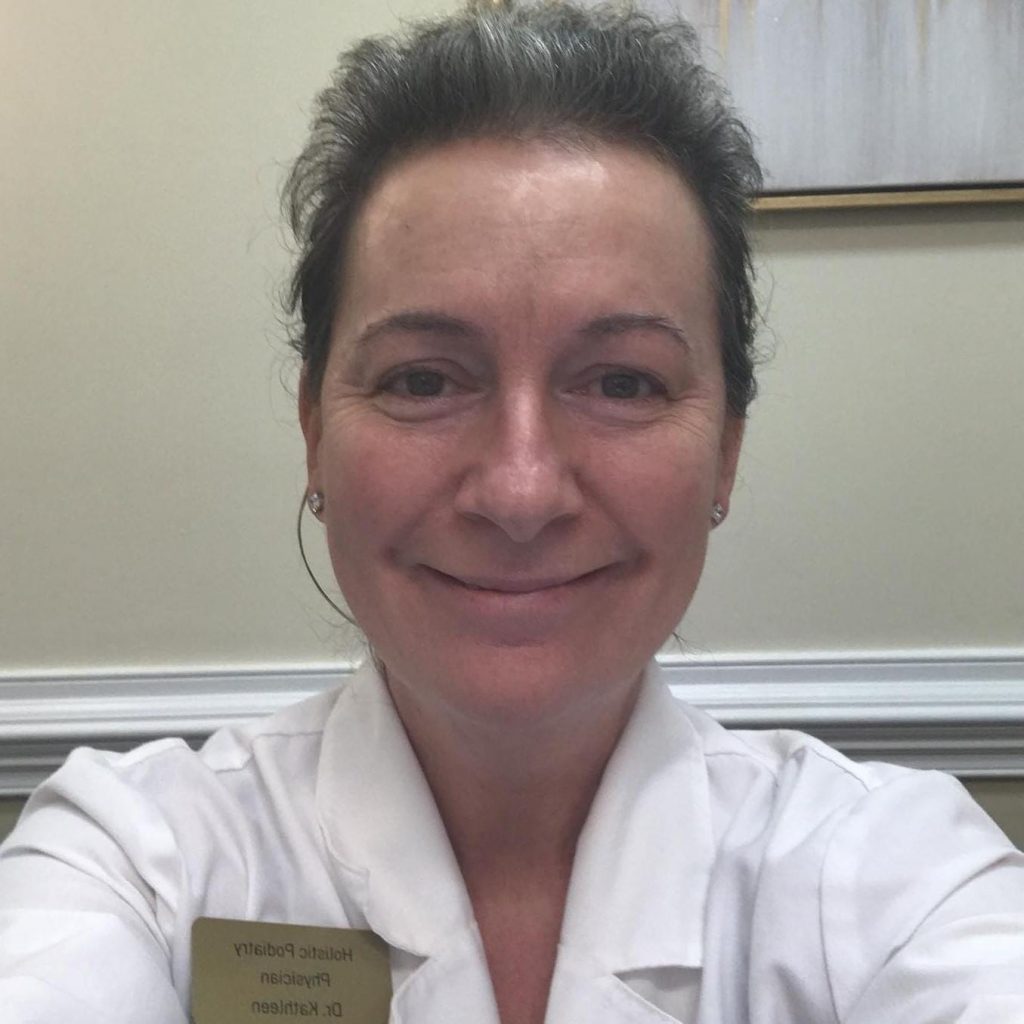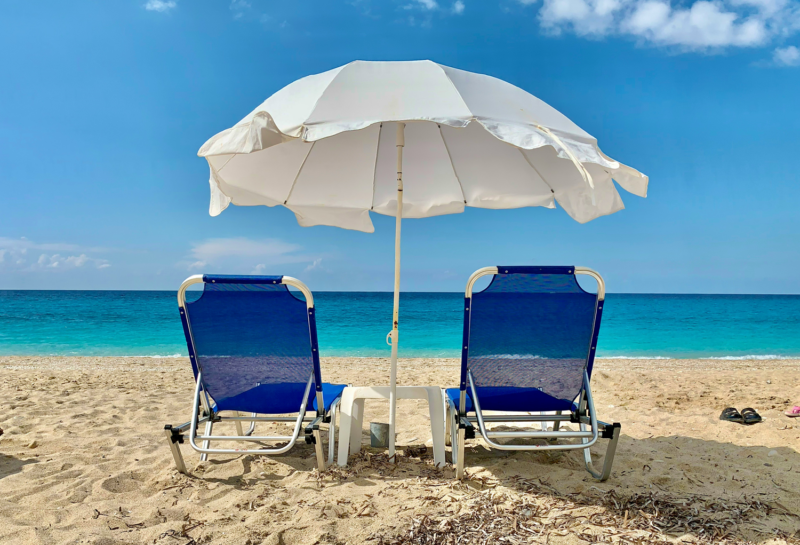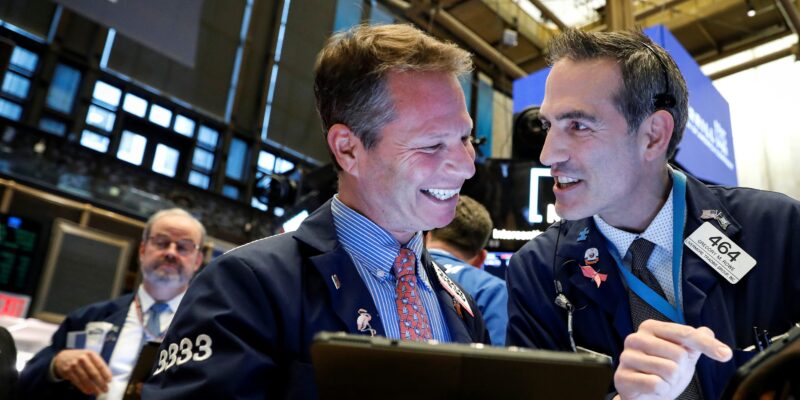- Kathleen LaRose has $895,000 in student debt she's been struggling to pay off under income-driven plans.
- Interest caused her debt to surge while she deferred her loans during her doctoral and residency programs.
- She said she qualified for forgiveness three years ago, but her payoff date is not until next year.
Kathleen LaRose loves being doctor — but she doesn't love the nearly $1 million in student debt that came along with it.
After graduating from SUNY Stony Brook in 1987, LaRose knew she wanted to go into medicine and specialize in feet and ankles. Taking out student loans was the only way for her to do it. So she borrowed $277,000 in federal loans to obtain her degree in Doctor of Podiatric Medicine and enrolled in an income-contingent repayment plan, which was the first version of an income-driven student-loan repayment plan that gives borrowers affordable monthly payments based on the income they earn, with the promise of loan forgiveness after 25 years.
Twenty-eight years later, LaRose has $895,512.97 in student debt. Insider viewed documents to verify these amounts.
"I thought, I'm going to be working with a doctorate in this country so I'll make a lot of money and be able to pay this," LaRose, now 55, told Insider. "But I never ended up making a ton of money, and I've maintained the monthly income-contingent payments, and they've never been in arrears. But they're just wildly out of control now."

Periods of deferment and forbearance are largely to thank for LaRose's debt balance that is over three times the original amount she borrowed. While she was in her doctoral and residency program, her loans were placed on in-school deferment, which allows a borrower to postpone their loan payments while in school. However, since her student loans were unsubsidized, interest continue to accrue during that time and capitalized, meaning it added on to her principal balance, causing her debt to grow.
On top of that, LaRose's forgiveness timeline on her income-contingent repayment plan got pushed back following transfers of her debt to new student-loan companies. President Joe Biden's Education Department has taken steps to help borrowers like LaRose by proposing limits to interest capitalization, and it's planning to introduce a new income-driven repayment plan in the coming weeks. But that doesn't solve the decades of financial challenges LaRose's huge debt load has brought, and Biden's reported plan to forgive $10,000 in student debt for borrowers making last than $150,000 would only be a drop in the bucket for her.
"I really value education. I think it's important that we give people the opportunity to be educated, but this is a really bad system," LaRose said. "Think about the economic problem that this has caused our country."
'I would never have taken out those loans'
Currently, LaRose earns five figures running a North Carolina private practice, and she also works with underprivileged elderly people in nursing homes. She said that while she loves being a doctor, she's not making the money she thought she would be making because she does not have a high volume of clients. She wishes she financed her degree differently.
"In retrospect, I never would have taken out those loans," LaRose said. "It's a great job. It's a rewarding job, and I can't imagine myself doing anything else. But I would have found another way. Even coming from a family with very moderate income, I would have figured it out."
LaRose has not been making payments on her student-loans for the past two years thanks to the pandemic pause on payments, and she said she does not know what her monthly bill will be when the pause expires after August 31. Her debt balance is split into two separate loans — one totaling $27,491 and the other $868,021 — and if all goes to plan, her estimate payoff date on the larger balance balance is in April 2023, according to documents reviewed by Insider. Her smaller balance has an estimated payoff date of January 2043.
If LaRose succeeds in getting the vast majority of her balance paid off through income-driven repayment next year, she will join the very select few in the country who have accomplished the same feat. A report from the Government Accountability office in May found that as of June 2021, the Education Department had approved just 157 borrowers for full forgiveness under income-driven repayment plans, and prior to that report, that number stood at 32 borrowers total. That's out of the 4.4 million who have been in repayment for 20 years or longer, according to department data.
Given that the repayment plan LaRose is on has worked out for so few people, she's not banking on that payoff date next year — especially since she was promised forgiveness after 25 years, and that still hasn't happened.
'I'd hate to see this cycle repeated'
LaRose is not the only student-loan borrower who is struggling under a student debt load while employed in what's supposed to be a high-paying profession. Insider previously spoke to Steve Pederzani, a licensed attorney with $347,000 he's struggling to pay off due to a difficult job market.
"We're not doing OK," Pederzani said. "Whoever told you that lawyers have instant tickets to the middle class, that maybe existed 10 or 20 years ago, but that doesn't exist anymore. It's not the same job market anymore."
Republican lawmakers have frequently criticized the idea of broad student-loan forgiveness because it would go to supposed high-earners like doctors and lawyers, but for some, that high income might never come, allowing interest to accrue and balances to grow. Biden's Education Department is planning to announce a new income-driven repayment plan in the coming weeks that "will make student loans much much more affordable," according to Under Secretary of Education James Kvaal.
And in July, the department released a proposal to prevent interest from spiraling on student loans, adding on to a borrower's principal balance. But for decades, LaRose said she's been crumbling under her student debt, and while the upcoming reforms likely won't help her, she hopes a better system will be in place for her two kids.
"I was so young when I took out these loans," LaRose said. "But at least I've been able to be a better counsel to my children with their debt. I'd hate to see this cycle repeated for them."










